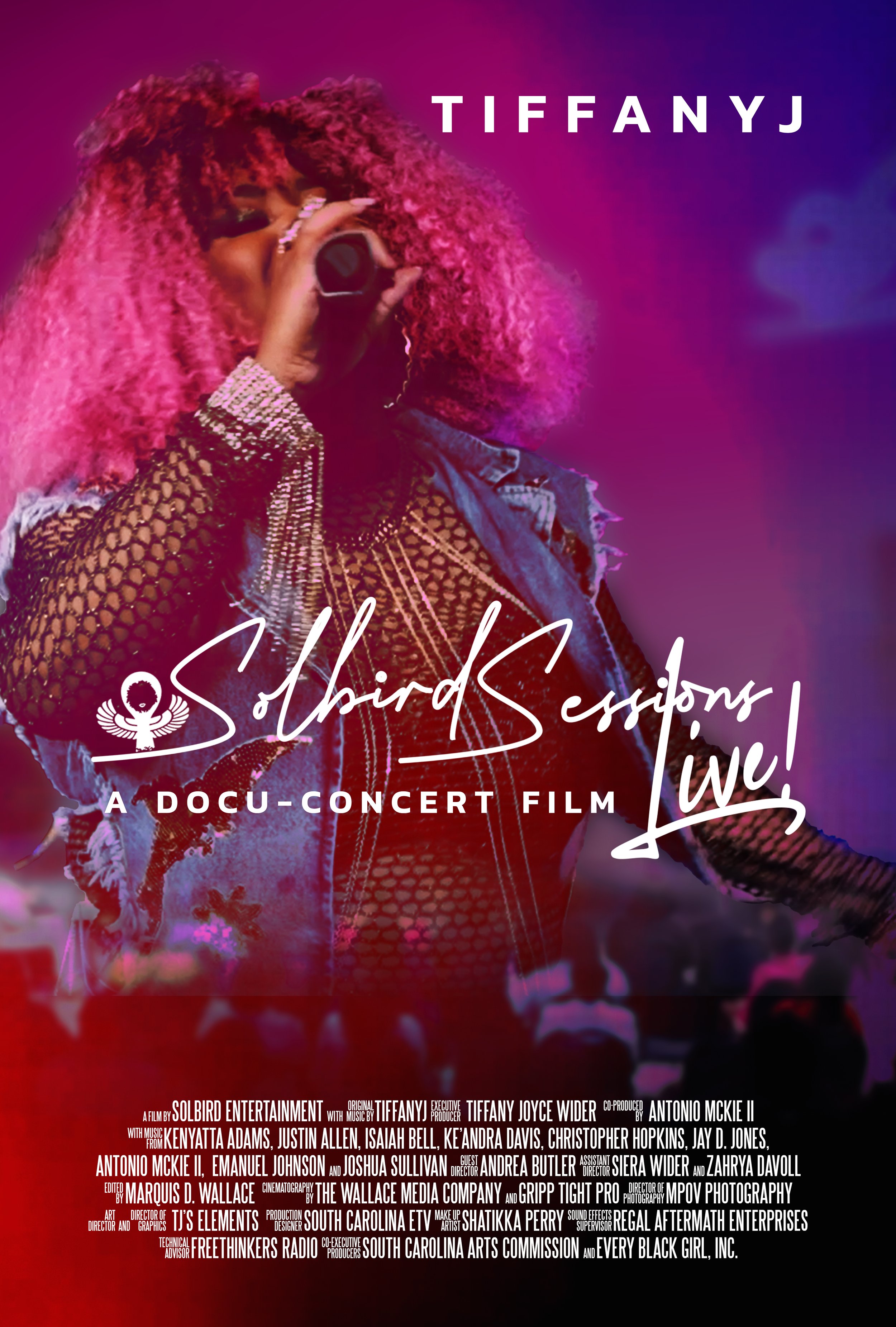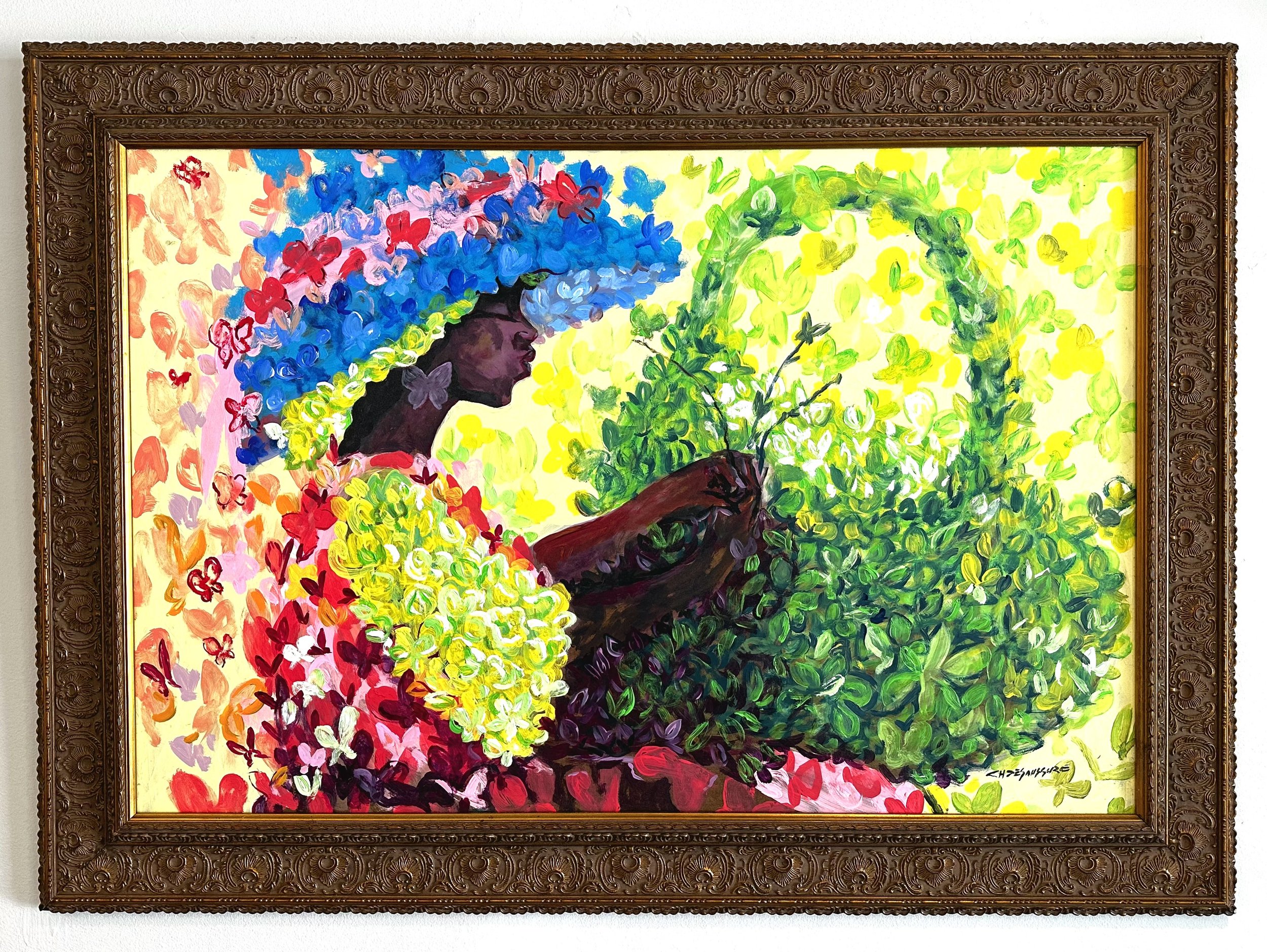On Fat Rat Da Czar’s classic 2009 release Cold War 2, “Do Whud I Do” opens with DJ Shekeese The Beast shouting “Can you hear me out there? We back!” before Fat Rat intones, “If you knew what I knew, then you could do what I do.” The partnership between the two Columbia, South Carolina hip-hop artists made them a marquee act and flag-bearers for the genre across the southeast for nearly twenty years, before Shekeese, in his own words, “went dormant” and focused on other business pursuits. Last year, as Fat Rat Da Czar readied a new campaign of hip-hop shows and productions, he re-enlisted his former DJ to appear on stage with him again and just like that, Shekeese Tha Beast was back as hype man extraordinaire and hip-hop ambassador. In a recent conversation with Jasper, Sherard Shekeese Duvall opened up about his entry point into hip-hop, the other pursuits that have occupied his time, and how he has come full circle to reconcile his disparate, multiple pasts into a unified future with a mission to bring South Carolina hip-hop into a new generation.
Before he was Shekeese Tha Beast, he was just a kid named Sherard, growing up in the neighborhood–but it was the formative experience of his life, he says now in retrospect.
“I grew up in Ridgewood behind Eau Claire High School, so it was a super, super black experience,” Duvall says. “The only time we saw white folks was when we went downtown.” It was a childhood surrounded by family, who shaped his worldview from an early age.
“My family was huge, and there were relatives on both my mom and dad’s sides who were into music, art, sports, politics, it was all there. I had an uncle who was political but also into Stevie Wonder, he gave me Malcolm X books when I was a kid. I had another uncle who played guitar, my grandfather played piano, so art, music, and all this stuff was all around me.”
It was a specific moment that led directly to hip-hop for Duvall, however, a purchase his mother made.
“She bought me a 45 of LL Cool J’s ‘Candy’ and on the back side was ‘Go Cut Creator Go’ and it blew my mind, I didn’t know how they were making those sounds,” He says. “Prior to that it was seeing the video for Run DMC’s ‘Rock Box’, and I couldn’t figure it out, like was the band the DJ on top of the car? That’s what made me want to be a DJ.”
As an entry point into hip-hop, it turned out to be the right one for Duvall as high school turned into college and beyond.
“After I got out of Columbia High, I met all the guys in Beat Junction Project, and around that time I also met Fat Rat Da Czar. The Beat Junction Project was doing its thing around Columbia, and he was doing his, and Streetside had put out a record that I was spinning at WUSC-FM.” As a student DJ, Shekeese Tha Beast was born and the show “Non-Stop Hip-Hop” put him on the airwaves weekly, featuring lots of local hip-hop talent in addition to his own DJ skills. His reputation grew, he hosted shows on Hot 103 and the Big DM, and Fat Rat came back around.
“Fat was coming out with a mixtape, and they were looking for a DJ for it,” Duvall says. “Not sure that one ever came out, but shortly after that he went on to start doing his solo stuff and we ended up collaborating on the mixtape ‘Fat Rat Is Dead,’ which was the beginning of the whole Shekeese Tha Beast and Fat Rat Da Czar thing.”
It was a perfect collaboration, Shekeese says, which explains the longevity of the relationship that endures to this day.
“We have a lot in common when it comes to not only how we saw hip-hop but also how we thought about opportunities and hard work, it was just a similar perspective that clicked.”
There were multiple releases that flowed after that, from the “Cold War” series of traditional hip-hop albums with Shekeese as hype man and DJ while Fat Rat dispensed rhymes and wisdom using his instantly recognizable flow. For a time, the pair was synonymous with South Carolina hip-hop, and credit is certainly due to them for all they’ve done to promote and support the genre within the state. Then Shekeese Tha Beast went silent, at least as a performing personality. The reasons behind that dormancy were both personal and professional, he reveals.
“Unintentionally, the separation with that part of me had to do with its popularity,” He says. “I was all over the radio, people knew me from that, from TV, doing the Love Peace and Hip Hop festival, all of that added to the notoriety and recognition.” What was happening behind the scenes, however, was that he was pursuing a professional career as a filmmaker and videographer, first with Genesis Studios and then with his own, still thriving operation as OTR Media Group.
“For the film stuff I felt like it needed to be different, so I was Sherard Duvall, not Shekeese Tha Beast, in that world,” He says. “When OTR came along I was still of the mind to keep things somewhat separate, because I didn’t want to enter rooms as Shekeese, I wanted to be Sherard, to be taken seriously as a business owner and not have it be like ‘Oh, the DJ is here.’”
For Duvall, the link between his hip-hop DJ persona and the work he was doing as a short film specialist and documentary filmmaker wasn’t immediately apparent, but it slowly dawned on him that he wasn’t doing anything all that much different after all.
“Hip-hop is a storytelling form, and OTR Media Group is built around storytelling in everything we do, from media literacy to media strategy work, nonfiction, short and long form media content,” He says. “Hip-hop is incredibly dense, we’re able to use a lot of words, mesh a lot of styles together, and we’re able to connect with more people in more ways than you can with a lot of other forms of music.”
In 2023, Sherard Shekeese Duvall, the filmmaker, husband, and father re-emerged as Shekeese Tha Beast on stage with Fat Rat Da Czar for several performances, something that Duvall says he’s enjoyed even more than he thought he would.
“Stepping back into the Shekeese Tha Beast thing has been one of the most joyous times in my life,” he says. “It was weird when I put it down because there was an article in the paper about me quitting, people didn’t know what to call me anymore, I treated it like ‘that thing I used to do’--but I realized when I was back on stage that I had been neglecting a part of myself; I’m hip-hop through and through and it made me feel whole to be on stage again.”
It’s the example and the role model, even mentor that he can be for the next generation that’s driving Shekeese Tha Beast now, he says–starting with his own son.
“Until recently my son had never experienced Shekeese Tha Beast, he was too young to remember me taking him to meet KRS-One or Lauryn Hill,” Duvall says. “He’s eleven now and I took him to the show we did at the Music Farm in Charleston. Him seeing me do that might not register now, but he’s a creative, free spirit kid and it might matter later on when he’s thinking, ‘You know, it’s alright that I’m left of center, that I’m different, because my dad is super different.’”
For now, Duvall says being “back” just means he’s whole, that his work in film and in the community will go hand-in-hand with his hip-hop persona and all that it entails.
“I feel like Shekeese Tha Beast is back for all the right reasons,” He says. “Where I find comfort now is in being a hip-hop ambassador for South Carolina. It’s more beneficial to the culture of our state to celebrate the diversity instead of nitpicking what is and isn’t hip-hop. So, all I can tell you is that wherever South Carolina hip-hop is, that’s where you’ll find Shekeese Tha Beast.”




















